CLINTON — Call it cow power.
Gas from cow manure would help heat Maine homes and businesses starting in 2021 under a plan announced Thursday by Summit Utilities aimed at supporting the local economy and fighting climate change.
Summit, the parent company of Summit Natural Gas of Maine, is proposing to construct a $20 million anaerobic digestion facility in Clinton, which bills itself as “Maine’s dairy capital” because its five dairy farms make up 17 percent of the state’s dairy production.
The digester will heat the manure, speeding its decomposition and creating biogas. The gas will be cleaned to remove impurities and piped into Summit’s system. Renewable natural gas is nearly identical to traditional natural gas and can be used for heating, cooking and other processes. The renewable attributes from the digester will be sold to third parties to help them meet their emissions reduction goals.
Summit anticipates that the digester will supply about 45 percent of the company’s annual Maine residential gas demand, or about 125,000 MMBtus of gas, to its customers in the Kennebec Valley, and in Cumberland, Falmouth and Yarmouth.
The Flood Brothers Farm on River Road in Clinton is one of the dairy farms that will be providing manure for the proposed digester.
“Anytime you talk about options and opportunities for dairy farmers, I get very excited,” Jenni Tilton-Flood, a family member at the Flood Brothers Farm, said Thursday. “We are challenged every day by things we cannot control. We have no options when it comes to weather; we have no opportunity when it comes to milk prices.”
“When it comes to having the ability to monetize and capitalize on the richness that these cows have and their abilities, that’s great. So I am very excited.”
Tilton-Flood said that of the roughly 225 commercial dairy farms in Maine that are spread across 15 of the state’s 16 counties, the Flood Brothers Farm is the largest.
“We have 3,400 animals we’re taking care of,” she said. “We milk 1,800 of those animals every day, producing 17,000 gallons of fresh Maine high-quality milk for our neighbors.”
There’s also a lot of manure and a lot of potential power.
Tilton-Flood said Summit will take “the energy” from the manure, giving the farm back the nutrient-rich, liquid effluent for the farm fields, and dry matter for compost and bedding.
“Right now we reuse our manure and recycle it to fertilize and feed our soil, and so we can feed our cows, and we find great uses for that; but there’s even more uses to unlock,” Tilton-Flood said. “Even though Summit is going to be taking the manure, we’re going to be getting the most valuable part of the manure back on our farm. We’re actually enhancing it. This is really a good benefit for our farm. This will be felt by us financially in a very, very positive manner.”
Besides the Flood Brothers Farm, Summit also is partnering with Caverly Farms, Misty Meadows Farm, Wright Place Farm, Taylor Dairy Farm, Veazland Farm, Simpson View Farm and Gold-Top Farm to obtain organic waste for its facility.

Jessika Hall milks cows Thursday on a circular 100-stall milking parlor at the Flood Brothers dairy farm in Clinton. The cows are expected to become even more productive when their waste is used to create biogas in a partnership with Summit Natural Gas of Maine. Morning Sentinel photo by David Leaming
The gas company expects the digester will be commissioned and producing gas by the first quarter of 2021, pending approval and permitting from regulatory bodies.
Tilton-Flood said the collection process will involve scooping up the manure with heavy equipment from holding pits and storage space on the farm and transporting it to the Summit digester for processing.
Summit spokeswoman Lizzy Reinholt said the price of natural gas is not expected to change with the new process in place and there will be no “cow pie” smell to the product.
“We don’t expect this project will have any impact on the cost of gas,” Reinholt said Thursday. “Like traditional natural gas, the renewable gas created from this facility will be odorless. We put odorants in our pipes – it’s required – because methane has no smell. That way, if there is a leak, customers can smell it.”
Tilton-Flood noted that the aroma around the farm might even improve.
“The products we farmers get back will also probably have less of a ‘dairy air’ than the manure we are usually handling,” she said. “I believe that in some applications, digesters are utilized specifically to help reduce odors.”

Darci Owens bottle-feeds a newborn calf Thursday at the Flood Brothers dairy farm in Clinton. Cows there are expected to become even more productive when their waste is used to create biogas in a partnership with Summit Natural Gas of Maine. Morning Sentinel photo by David Leaming
Kurt Adams, Summit’s president and CEO, said the project is the next step in the company’s ongoing effort to build a sustainable energy future by investing in innovative technologies that mitigate climate change.
“Since coming to Maine in 2013, we’ve been able to reduce carbon emissions by an estimated 69,000 metric tons a year through conversions to natural gas and energy efficiency upgrades,” Adams said in a statement. “That’s like taking 15,000 cars off the road forever. Our renewable program is the next step in our ongoing efforts to reduce greenhouse gas. It’s simply the right thing to do for our customers, our business and our children.”
In Maine, more than 60 percent of homes heat with oil, which makes it possible for Summit to enhance its sustainability efforts in an attempt to lure more customers, Adams said.
“We know our cows are amazing and we’re so excited about this partnership that unlocks the potential of our farms, our farmers, and our cows to play a role in generating a clean, renewable energy source,” Adams said.
Tilton-Flood, a mother of two, said her family and farm – producing milk commercially since 1927 – also are excited about the planned project. They produce 1,900 acres of corn and about 2,500 to 3,000 acres of grass to feed the cows. There are 43 people on the farm payroll, including 11 family members.
“We’re hoping to be able to make this work for us to be a financial benefit for us,” Tilton-Flood said. “This is just another way for us to be environmental stewards. This is our job. It’s what we’ve done. Sustainability is all about taking yesterday, doing stuff today to make sure we get to tomorrow. That’s sustainability. We’re able to do that now, and we’re going to be able to do it even more and even better with this partnership with Summit.”
In Maine, more than 60 percent of homes heat with oil, which makes it possible for Summit to enhance its sustainability efforts, Adams said.
“We know our cows are amazing and we’re so excited about this partnership that unlocks the potential of our farms, our farmers, and our cows to play a role in generating a clean, renewable energy source,” he said.
Tilton-Flood, a mother of two, said her family and farm — producing milk commercially since 1927 — also are excited about the planned project. They produce 1,900 acres of corn to feed the cows and about 2,500 to 3,000 acres of grass to feed them as well. There are 43 people on the farm payroll, including 11 family members.
“Anytime you talk about options and opportunities for dairy farmers, I get very excited,” she said. “We are challenged every day by things we cannot control. We have no options when it comes to weather; we have no opportunity when it comes to milk prices. When it comes to having the ability to monetize and capitalize on the richness that these cows have and their abilities, that’s great. So I am very excited.
“We’re hoping to be able to make this work for us to be a financial benefit for us. This is just another way for us to be environmental stewards. This is our job. It’s what we’ve done. Sustainability is all about taking yesterday, doing stuff today to make sure we get to tomorrow. That’s sustainability. We’re able to do that now, and we’re going to be able to do it even more and even better with this partnership with Summit.”
Press Herald Staff Writer Tux Turkel contributed to this report.
Send questions/comments to the editors.


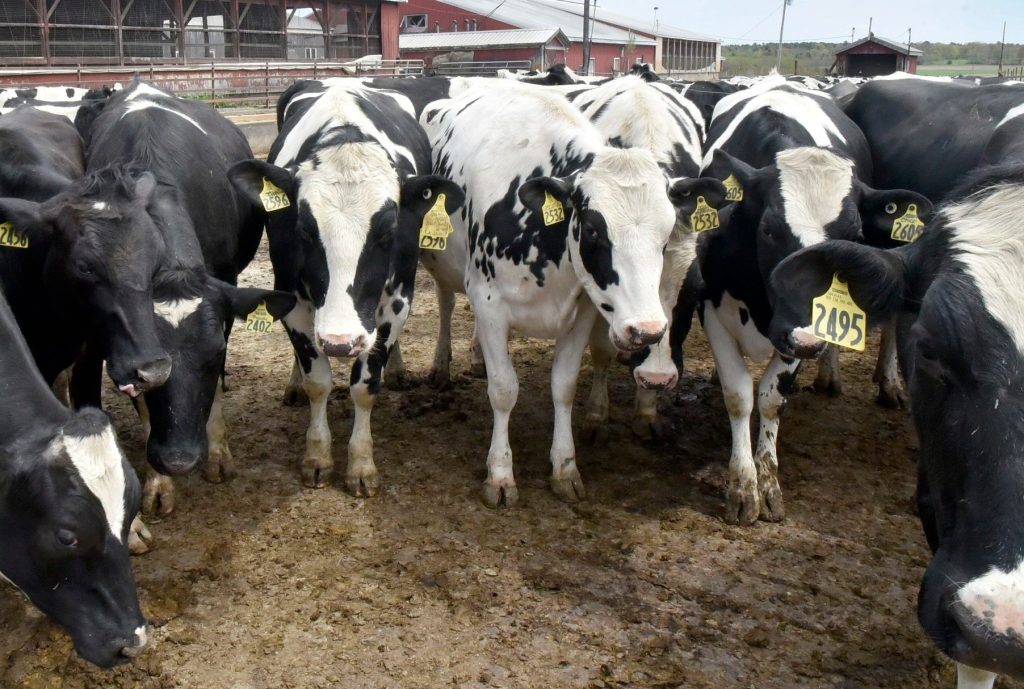
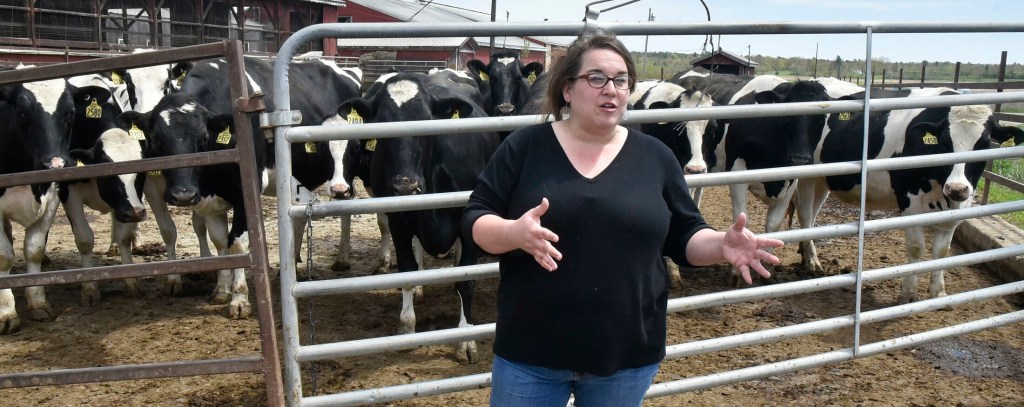
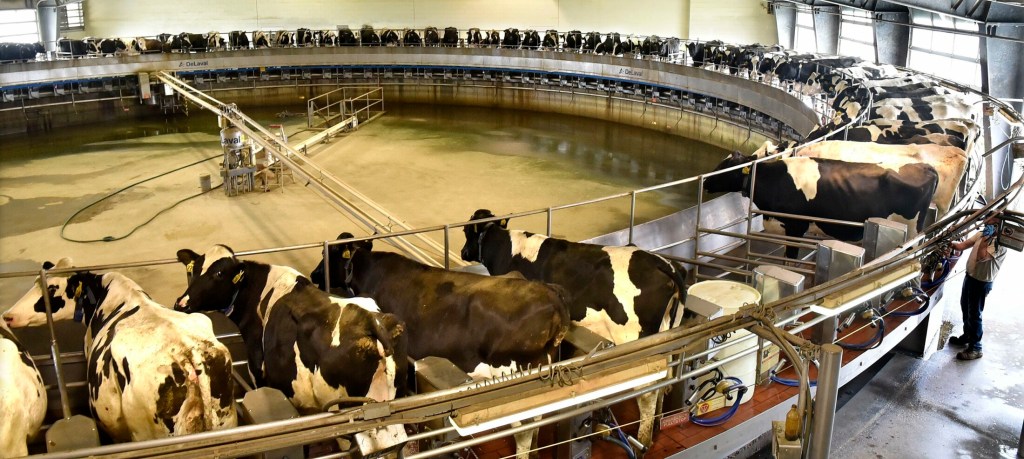
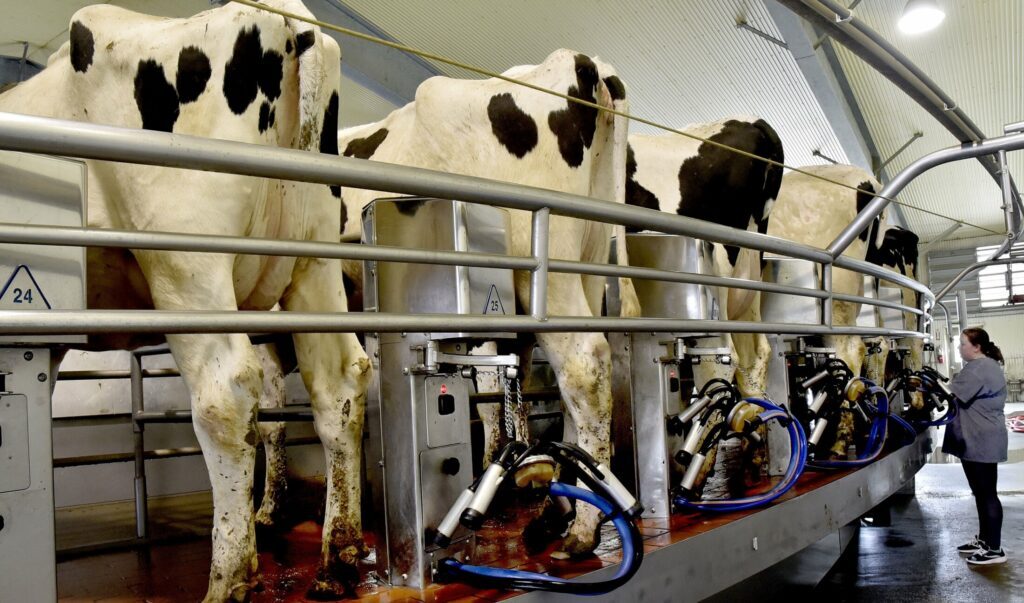
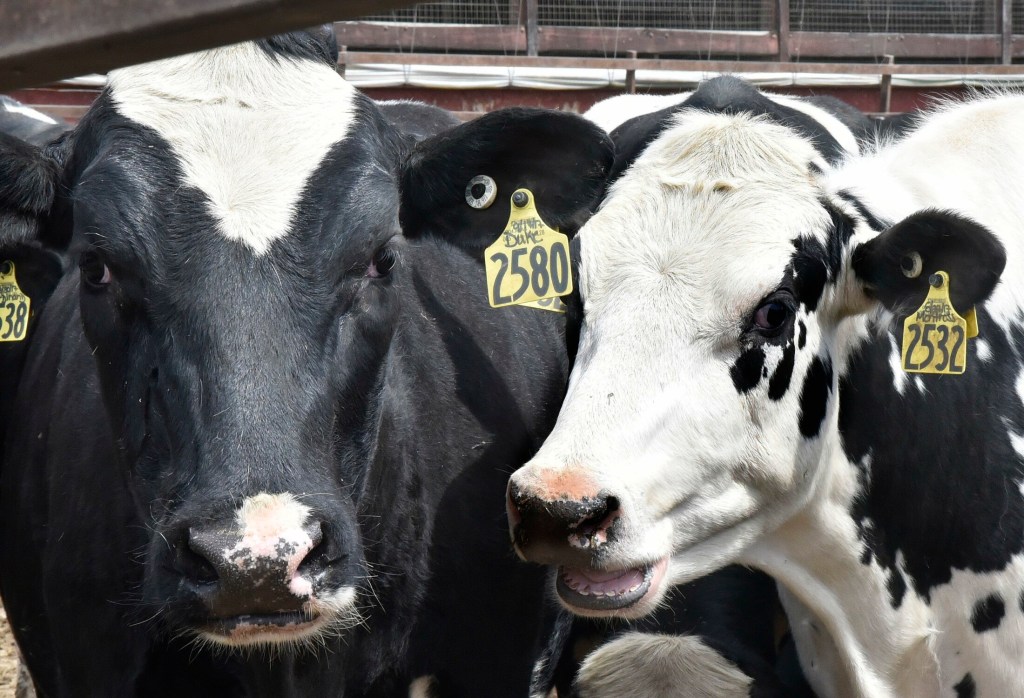
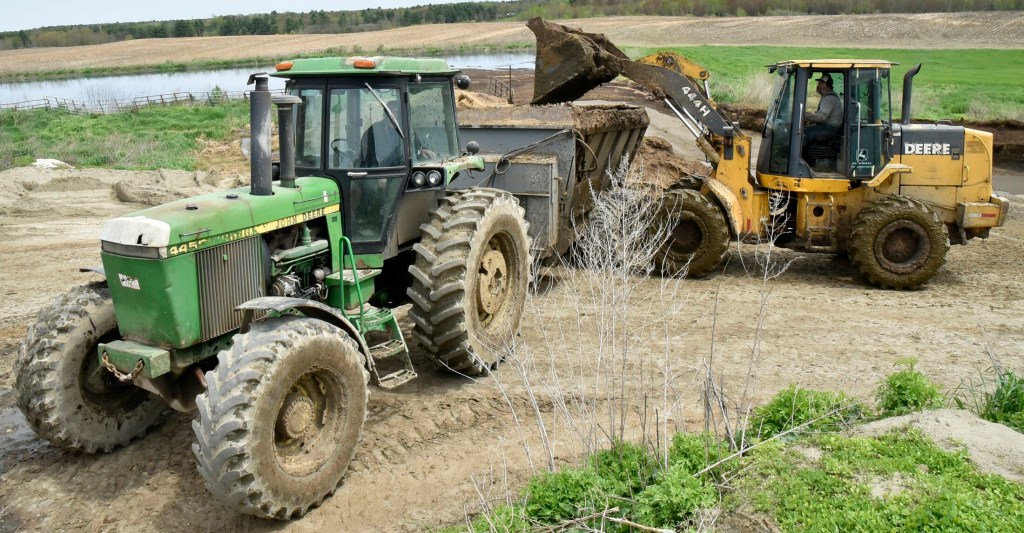
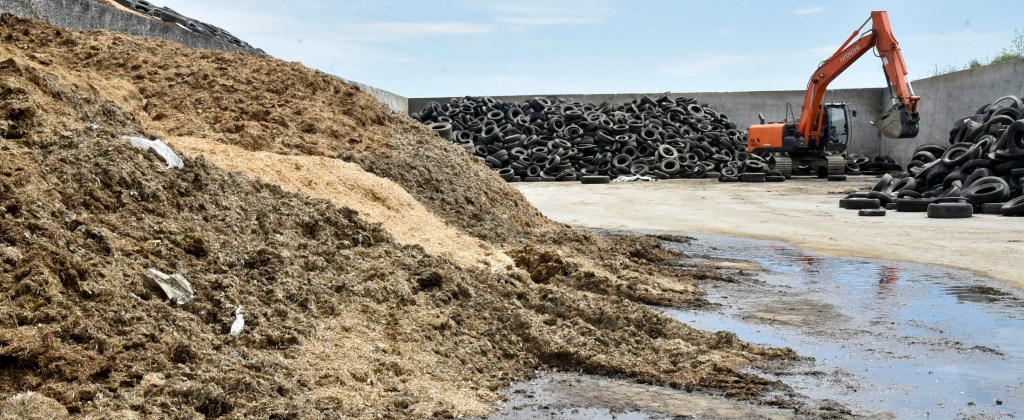
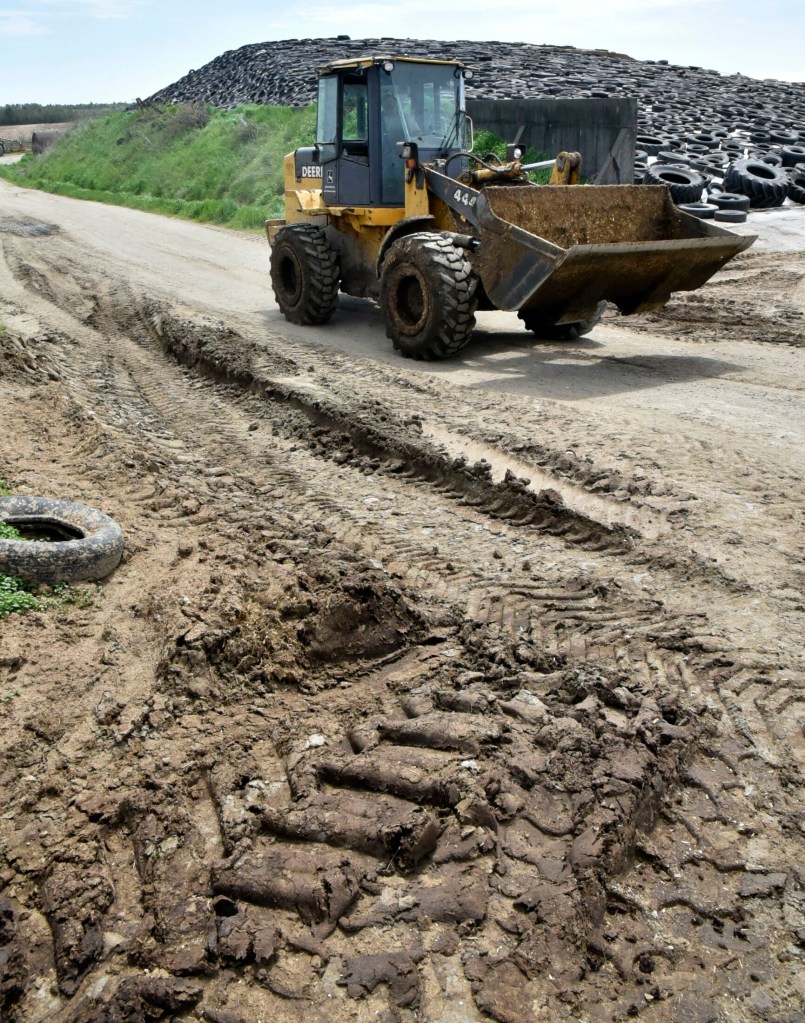
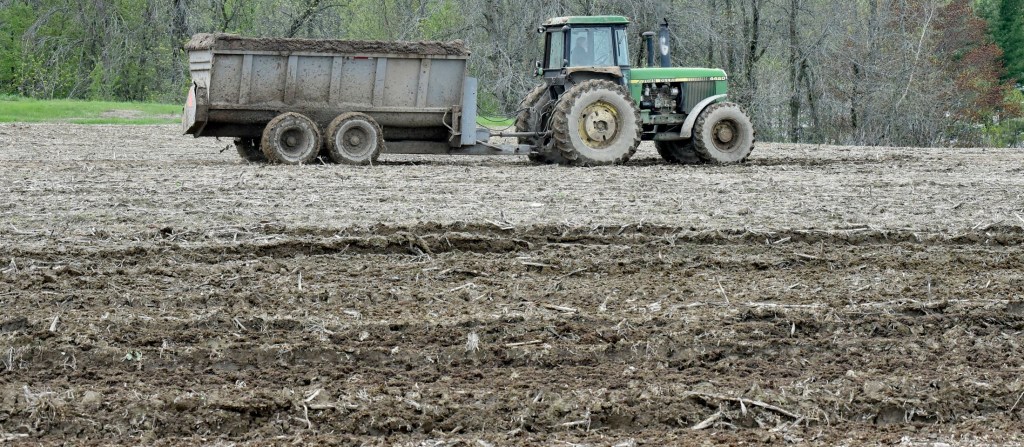
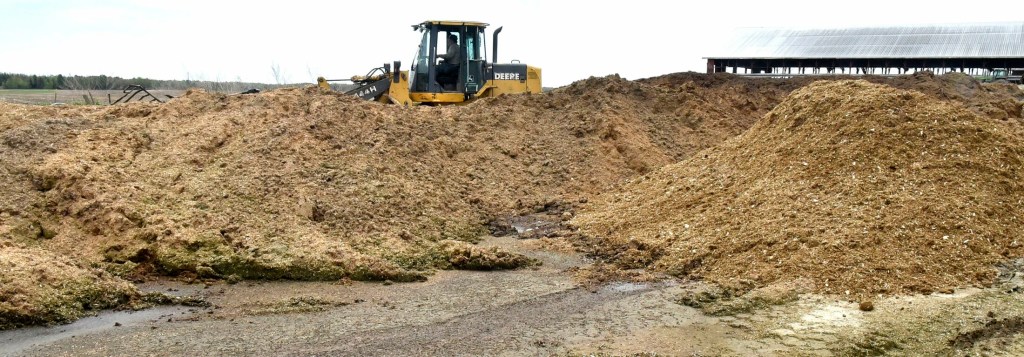
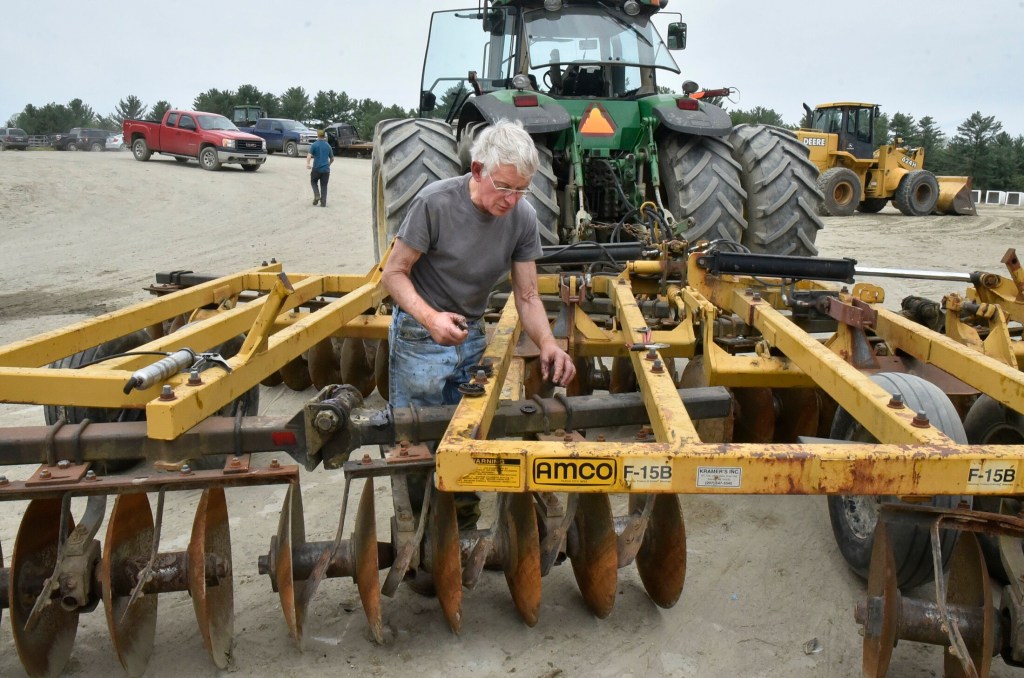
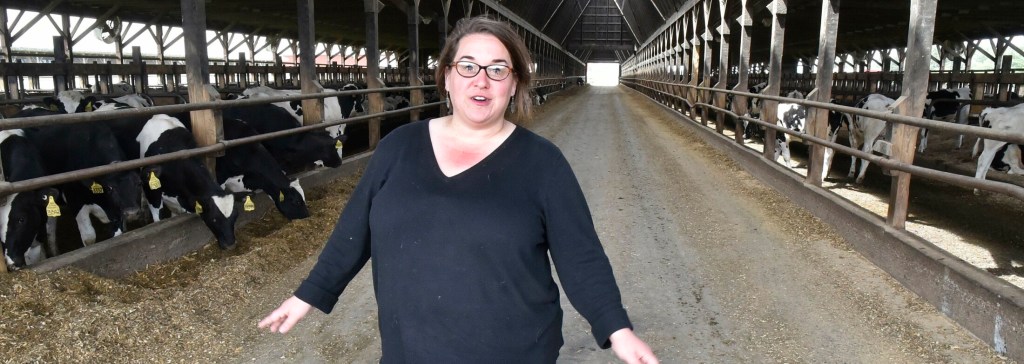
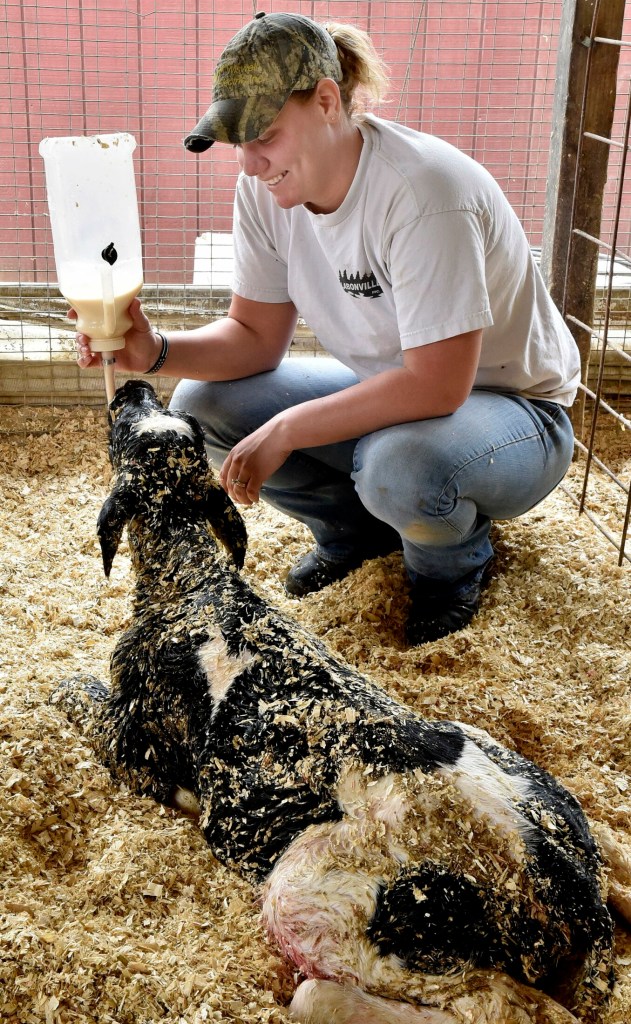
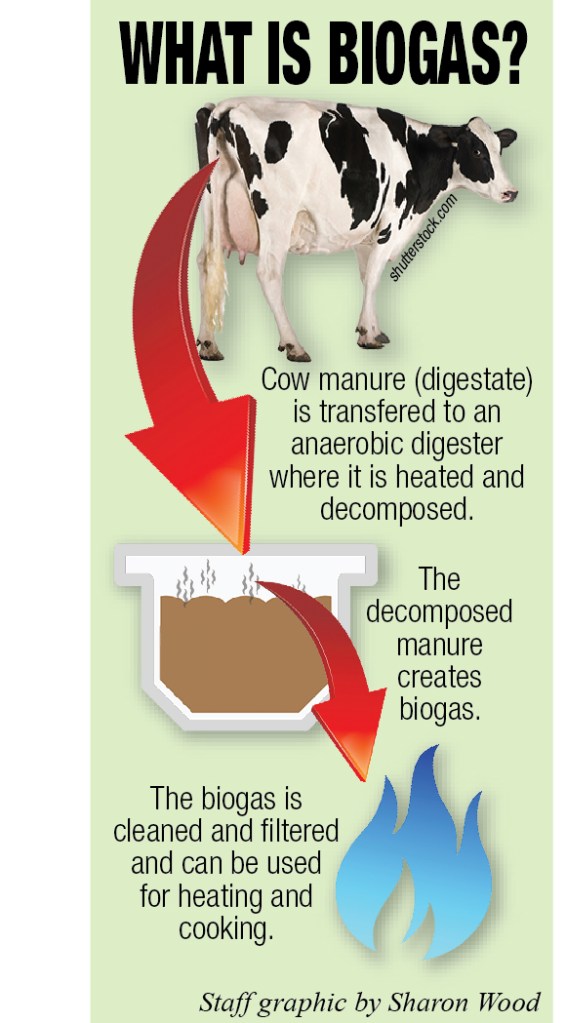

Success. Please wait for the page to reload. If the page does not reload within 5 seconds, please refresh the page.
Enter your email and password to access comments.
Hi, to comment on stories you must . This profile is in addition to your subscription and website login.
Already have a commenting profile? .
Invalid username/password.
Please check your email to confirm and complete your registration.
Only subscribers are eligible to post comments. Please subscribe or login first for digital access. Here’s why.
Use the form below to reset your password. When you've submitted your account email, we will send an email with a reset code.